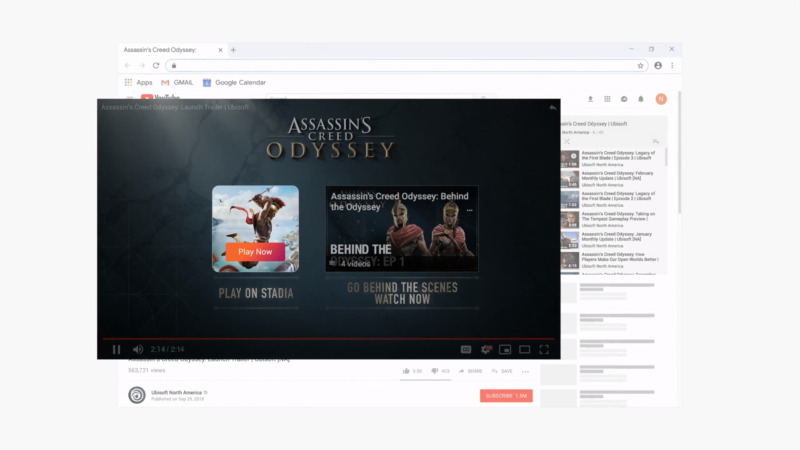Despite “revolutionary” promises, Stadia’s biz model is pure establishment

Enlarge / "Play Now"... but first, do you want to pay full price to buy the full version of the game?
In announcing Stadia this March, Google executives sold their streamed-gaming ambitions as a way to revolutionize the gaming business and the community surrounding it. With today's announcement of Stadia's pricing and business model, though, the company seems to be stuck in a decidedly old-fashioned mode that doesn't really exploit streaming's biggest benefits.
It starts with the initial hardware purchase requirements. A big part of Google's sales pitch for Stadia was the fact that the service would work on any computer with a Web browser, as well as generic mobile phones and tablets, using non-proprietary USB controllers. Requiring early adopters to purchase $129 worth of Chromecast Ultra and Stadia Controller hardware cuts against that "open to anyone" messaging. In a world where an Xbox One with a bundled game routinely sells for under $250, asking for a $129 hardware commitment to use Stadia's platform doesn't seem especially revolutionary.
Yes, that "Founder's Edition" purchase requirement (and the attendant $9.99 Pro-tier monthly subscription) will go away sometime in 2020-likely after Google has confirmed its game streaming servers can work at scale. But by then Google will have already lost the initial impact it could have had with a launch to billions of Chrome users. Requiring mobile users to have a Google Pixel 3/3a phone similarly deadens the market impact of Stadia's planned November rollout.
Read 15 remaining paragraphs | Comments